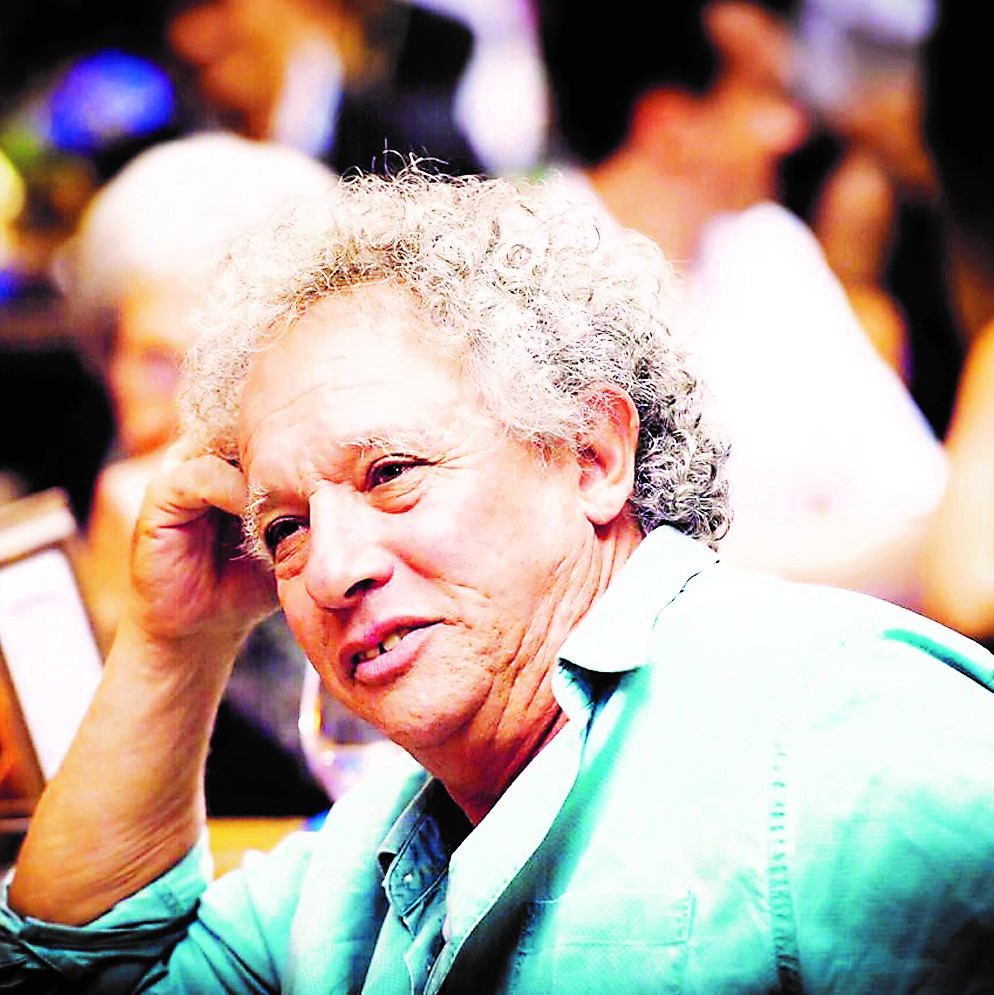
News

Renowned filmmaker cut down by COVID-19
TALI FEINBERG
“It was out of the blue. He was healthy and fit, and walked his dogs every single day,” says his niece, Angie Segal. “We think that he got it at a local pharmacy that was later closed due to staff testing positive for COVID-19. He went in to get supplies and wore his mask, but none of the staff were wearing them. He never went anywhere else. Soon after, he got a persistent cough.
“He did a COVID-19 test, and it was negative. For a couple of days, he stayed home with a fever and breathing issues,” she says. “His family eventually took him to hospital where the doctors admitted him, put him on oxygen, and re-tested, which came back positive. He was in hospital for a week. They put him on a ventilator after four days, and he died on the Sunday evening.”
Dworkin was best known for his work as a ground-breaking documentary filmmaker in South Africa, especially at the height of apartheid. “He would smuggle documentaries out of the country so that the world could see what was happening,” says Segal. “His films made the world stand up and take note. He was jailed and put in solitary confinement for months, and eventually went into exile in London.”
On his return to South Africa, Dworkin would go on to co-direct Steps for the Future, a non-profit organisation that uses the power of documentary films and film screenings to give vulnerable people a voice.
Segal says her uncle would never speak of his time in jail. “Anytime someone asked, he would just change the subject. He just said he was in isolation, with a light on 24 hours a day so he didn’t know if it was day or night. He said his only worry in jail was that his parents and siblings were okay.”
Although Segal was a newborn when Dworkin was jailed, she said his life path had a profound impact on her. “I can’t describe the pride I have always had in him. Whenever apartheid, injustice, or conservation came up in conversation, I would always talk about the personal sacrifices he made. I remember speaking of him like this already when I was in primary school.”
“Laurence was a role model and true mensch, making a difference where he could in his own quiet way and with a big heart,” says his nephew, Ricky Hesselberg. “He was passionate about the Cape and its plant and animal life. My wife Chantal and I have fond memories of joining Laurence and his wife Louise on trips around the Western Cape. We got to see hidden places that not many people would ordinarily come across.”
An extremely humble man, “Laurence never told people what he was doing,” says Segal. “He didn’t speak, he just did. He would never tell people about the struggles he endured or the work he was busy with. This quote epitomised him and his work: ‘It’s not about who you impress, it is about who you impact.’”
Indeed, Dworkin was still making a major impact. “He was mentoring students from underprivileged backgrounds on film production,” says his niece. It was part of a project titled CareTakers, which aimed to “use documentary film to communicate the importance of nature to all people”, as Dworkin described it on the project’s website.
“The people that CareTakers most wants to reach are the youth of South Africa. We have a vision of all young people being inspired by nature to take care of their own lives, guided by a strong cadre of leaders dedicated to building an environmentally sustainable society,” he wrote.
“To this end, we engage directly with youth through partner organisations working with them. Projects include story development workshops leading to participatory film productions guided by professional mentors. Once a film is completed, larger numbers of youth are trained as facilitators to conduct community-based facilitated screenings. This participatory methodology is based on an action-learning cycle approach to inspire and mobilise people to effect meaningful change in their communities.”
Dworkin also set an example for how South Africa’s resources could be shared. “When his work with apartheid was done, he loved to spend time on his beautiful rooibos farm,” says Segal. “He signed over his precious, valuable, enormous, and bountiful farm to a trust for his farm workers to own and live on it freely with their families and generations to come.”
Her uncle’s Judaism played an important role in the choices he made. “His Jewish identity made him aware of oppression,” says his sister Ashne Hesselberg. His nephew recalls the last Pesach seder they had together. “Laurence paid tribute to our ancestors and our past, remembering what our people went through. I realised just how proud he was of his heritage. Like me, Laurence wasn’t an observant Jew, but was certainly a proud Jew, and he showed it in subtle ways.”
The seder ended on a humorous note, as “Louise went to the kitchen to fetch the lovely dish that she had prepared for us only to find that their dog had managed to eat a full serving of food for four people! Even though it was the most casual Pesach seder, it felt really meaningful for us. This is one example of how Laurence put such effort into things that he held close to his heart. His passing is a great loss for many, and we will miss him deeply.”
Dworkin was one of five siblings. His brother, Errol, passed away suddenly from a heart attack 30 years ago. He is survived by his wife, clinical psychologist Louise Rabe, and sisters Ashne Hesselberg, Vivienne Sacks, and Denise Fanaroff. “He and Louise had been together for 25 years, and she had two children and three grandchildren that he loved,” says Segal. “Together, they changed the world.”




